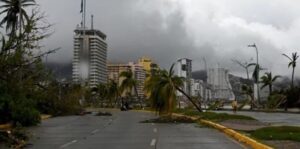
Last Saturday, the worst train accident of the twenty-first century occurred in India, leaving 261 people dead and 900 injured. Three trains collided in the east of the country, but so far the authorities have not explained the causes of this tragedy.
The incident took place in Balasore district of the Odisha region at around 19:20 local time. According to the statement issued by the railway authorities, one passenger train derailed, and then a second train collided with it. A third freight train was also involved in the accident.
The wagons were smashed and strewn along the tracks, forcing rescue teams to spend more than twelve hours cutting metal to rescue survivors and recover bodies. During the night and morning, the number of dead and wounded rose rapidly. According to the southeastern division of the Indian Railways, 261 deaths and at least 900 injuries of varying severity were reported, who were taken to hospitals in the region.

Indian Railways Minister Ashwini Vaishnaw announced that a thorough investigation into the causes of the accident will be conducted. Meanwhile, Indian Prime Minister Narendra Modi visited the crash site to express his grief over the tragedy and assured that those responsible will be severely punished. As a sign of solidarity, a day of mourning was decreed in the state and financial compensation was offered to the families of the victims. More than $12,000 will be awarded to the dead, about $2,500 to the seriously injured and $606 to the slightly injured.
This is the worst railway accident that has occurred in India in the twenty-first century. Earlier, in August 1999, a train crash in West Bengal left 288 people dead, and in 1981, around 800 people died when a train derailed and fell into a river in Bihar. The event has received condolences from the international community, with messages of support from Chinese President Xi Jinping, European Commission President Ursula von der Leyen and Pope Francis, who expressed deep sadness.
India’s railway network is one of the most extensive in the world, with 68,000 kilometers of travel, approximately 21,650 trains and 7,349 stations throughout the country. On a daily basis, it carries about 23 million passengers.









